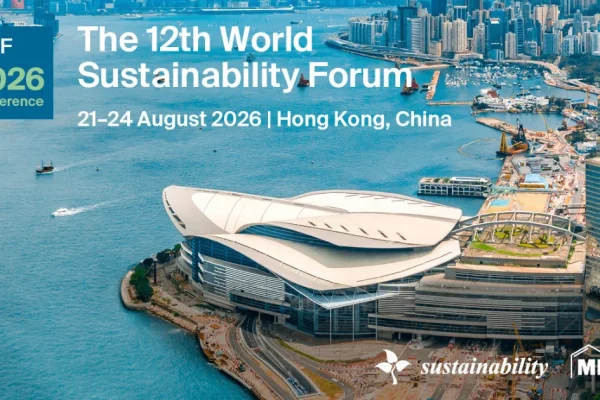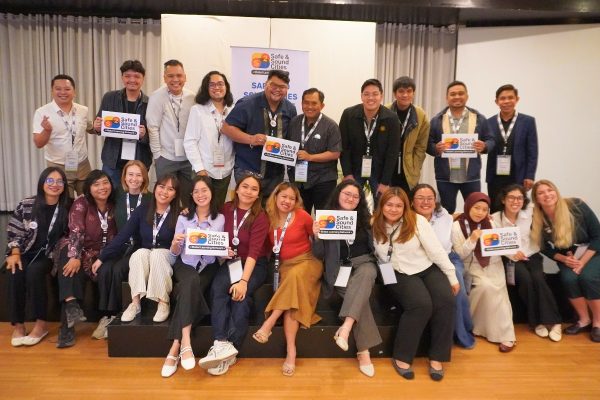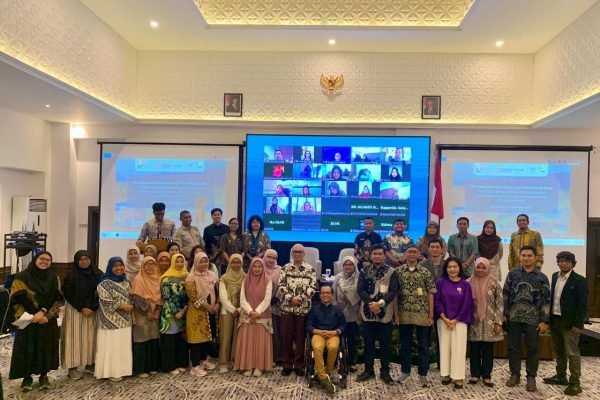The 2024 ICLEI Southeast Asia Annual Report is now available! Click HERE to read about the organization’s achievements and activities within the region throughout the past year.
Message from the Secretariat
“What will the future look like 25 years from now?”
Over 25 years ago, we asked a similar question at ICLEI when it started its first project in Southeast Asia in 1999. By 2004, ICLEI officially established a Regional Secretariat for Southeast Asia, aiming to provide an answer to the question: What would the future look like for Southeast Asia if sustainable development were mainstreamed among cities and municipalities in the region?
As we conclude 2024 as the ICLEI Southeast Asia (SEA) Secretariat’s 20th official year of operations, we look back at the past 12 months while recognizing two decades’ worth of expertise and impact that continues to drive us to do more and remain consistent in our work of supporting local and regional governments on the path of sustainable development. With each passing year, our history and milestones grow to inspire us.
With this, the Secretariat commemorates its 20th Anniversary guided by the slogan, “INSPIRE-ASEAN: Innovating Sustainable Pathways for Inclusive, Resilient, and Empowered Cities in the ASEAN.” This reflects our two decades-long commitment to supporting subnational governments by bringing them together, fostering knowledge exchange, collaboration, and innovation within the region. Developing an active and cooperative network of regions, cities, and municipalities working towards Sustainable Development Goals has proven, through our experience, that we can indeed go farther and achieve more when we work together.
In 20 years, ICLEI SEA has grown to have 67 member local governments, with more than 150 local governments engaged; and more than 60 projects implemented with over 160 partners. In 2024 alone, the Secretariat implemented 15 major projects and over 10 light-touch engagements involving over 150 local governments and 45 partners.
Behind these numbers, more importantly, is what we at the Secretariat consider to be our real, lasting impact. Through the member and network local governments of ICLEI that have continued to demonstrate leadership and continue the work they have begun with us, we see that sustainable development—when mainstreamed into local plans and all sectors—is not just an empty buzzword, but is a continuous and collaborative process that seeks to create a safe and healthy future for the next generations. Our work at ICLEI has shown us that subnational governments are capable of leading sustainable development efforts, and with their direct influence on communities, it is crucial for them to keep doing so.
While networks such as ICLEI have proven the value of multi-sectoral, international, and local-to-national cooperation in strengthening sustainable development, it is also important that subnational governments have direct and specific targets or goals. In the integration of sustainability in all facets of development, it is evident that sustainability is all-encompassing and has become non-negotiable in the face of the climate emergency. Even with this as a given, sustainability efforts can have main focal points. ICLEI identified five interconnected development pathways to guide our approach in designing sustainability solutions with local governments: zero emissions development, resilient development, circular development, equitable development, and nature-based development. These pathways can also be a framework for local sustainable development.
Our projects in 2024 can be characterized by three (3) core themes: planning for resilience and renewable energy; inclusivity and active stakeholder participation; and capacity-building to enable local governments to lead climate action.
These three core themes reflect our current and most urgent needs as countries fall short of their targets to limit emissions. By the end of 2024, scientists and climate analysts have agreed that countries are not doing enough and not aiming high enough to limit emissions that speed up global warming and intensify catastrophes. Among the recommendations made by World Resources Institute (WRI) experts for countries to amp up their Nationally Determined Contributions (NDCs) include prioritizing the transition to renewable energy, resilience, and working with subnational actors towards the national climate agenda.
Planning for resilience and renewable energy
For the past year, ICLEI SEA has contributed to subnational governments’ goals of accelerating their renewable energy transition and making critical transformations in the energy and transport sectors through its projects that help develop renewable energy roadmaps, assess local emissions, and improve local readiness for investments that will fund their sustainable infrastructure needs.
A number of our projects in 2024 also assisted cities in adapting to the worsening effects of climate change, redefining resilience as data-driven and risk-informed planning, instead of passive, reactive efforts after disasters.
Inclusivity and active stakeholder participation
In these crucial times, an inclusive, multi-sectoral approach to development is no longer an option but a need. Projects and programs that fail to take into account the power of stakeholders and communities as partners, and not merely as beneficiaries, are challenging to sustain.
With these priorities, we believe that Southeast Asian subnational governments are on the right track. However, as we reach 2025—marked by the Paris Agreement as a benchmark year to assess whether the efforts to slow down the climate’s warming is on track—knowing that countries are falling short on their targets means that having the right priorities are no longer enough, especially with how rapid greenhouse gas emissions continue to increase over the years. It is also crucial that countries raise their climate plans and actions by raising their NDCs.
Capacity-building to enable local governments
What we at ICLEI SEA have learned over the years is that subnational governments, while guided by their country’s NDCs as their framework, do not have to wait. Subnational governments can raise their own targets and strengthen their plans for local climate action, and our work at ICLEI is to help them reach these targets through the five development pathways. Our work so far attests to how, when people working in and with subnational governments are capacitated with the skills and knowledge they need to accelerate sustainable development and climate action, local solutions can be carried on, expanded, and diversified. ICLEI SEA continues to believe that local action, especially when accumulated, transforms systems and communities.
As we look back to see how far society has come in terms of climate action, we must avoid settling into complacency. Past accomplishments and technological advancements should challenge us to aim higher and be more inclusive and intensive in the way we plan and implement climate action.
What will the future look like in 2050, 25 years from now by the net-zero deadline? It would depend on how much we learn from the past, how urgently and ambitiously we act in the present, and what we choose to focus on. For Southeast Asia, we aim to build on the work we have done with members and partners for the past 25 years, which is a testament to subnational governments in the ASEAN consistently striving to take charge in shaping a sustainable, equitable, and livable future.
In the years to come, we hope to continue helping make this future a reality.
(sgd.)
Victorino Aquitania
Regional Director
ICLEI Southeast Asia




